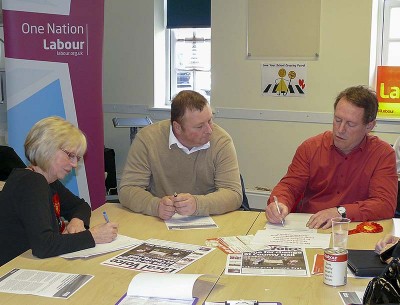
Today Rachel Reeves made a speech that exposed the failing of this government policies on housing and welfare. The remodelling of employment, where a growing number of workers are in insecure jobs, that are part time and low paid has resulted in tax payers having to pay for this governments failure. Wells PPC , Chris Inchley, explains why.
The recent figures that showed in the Wells constituency 38% of workers earned less than a living wage, with the average wage around £17000 pa.
Rachel Reeves, the shadow work and pensions secretary, says that the number of working people claiming housing benefit is due to double between 2010/11 and 2018/19. Her figures, which are drawn from the House of Commons library, show that an increase in working people claiming housing benefit would cost £12.9 bn – or £488 for every British household between 2010/11 and 2018/19.
The bulk of the increase will come in rent subsidies in the private sector and, in part, reflects the number of people in part-time or low-paid work. Housing benefit makes up about 14% of welfare spending, much of which goes into the hands of private landlords.
It is likely that the number of working people claiming housing benefit is set to double, this because the Tory government has failed to tackle low pay, insecure work and the cost-of-living crisis, with the consequence of thousands more people are being forced to rely on housing benefit to make ends meet.
‘Taxes Handed to Private Landlords’

The tax payer is effectively handing their taxes to private landlords with no assets accrued for the tax payers investment, just redistributing wealth from those who do not have to those with wealthy assets.
To continue on this course of low pay insecure work will lead to higher welfare payments. It is obvious that a change of approach is required. We need a government that will tackle low pay, raising the skills of workers, which in turn must lead to an increase in the minimum wage and a move towards the living wage, a basic requirement in making work pay.
The housing market needs to be rebalanced. It is unsustainable for the current (over) ten times annual salary for the average house price, with the gap between wages and house prices increasing.
It is clear many, many more affordable houses need to be built, without action the current housing crisis, will get worse, with the welfare budget increasing with little benefit to the tax payer or for the local communities.

It is no wonder that there is a cost of living crisis when you see bus drivers’ jobs advertised at the pay rates shown here:-
http://www.webberbus.com/
My wife and I were getting about £1.20 an hour more than this when we moved to West Somerset from Slough. This wasn’t last week or last year, it was FIFTEEN years ago. When I left First in 2002 I was being paid only about 50 pence an hour less than this. This is typical of how privatisation and a competitive market have downgraded the pay and conditions of busmen across Britain with some actually being paid the national minimum wage in some areas. Busmen are not an isolated case and there are millions who have seen no improvement in living standards while a large proportion of those have actually experienced a decline. Tony Blair should have done something during his time in office to mitigate this problem by unshackling the trade unions so that they could effectively serve their members which, in turn, leads to higher pay and better conditions in non-union firms. If we are to have competition it needs to be on a level playing field so that working people are not fighting with one hand tied behind their backs. We also need to have a national campaign extolling the benefits of joining a trade union while giving back working people the right to say enough is enough.